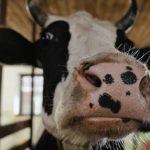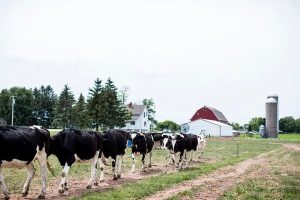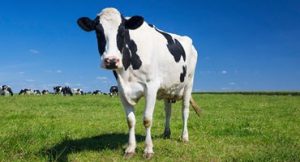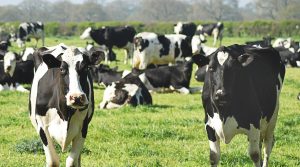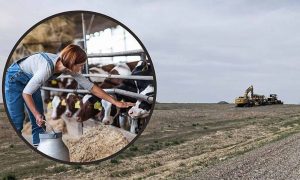
Funded by a $1 million grant from the U.S Department of Agriculture (USDA), a Penn State-led research team will assess levels of antimicrobial-resistant microorganisms in Puerto Rico’s dairy industry and train farmers and students to mitigate the health threat they pose in the U.S. territory.
The four-year award, coming from USDA’s National Institute of Food and Agriculture, will allow the research team to quantify the prevalence of Escherichia coli and Staphylococcus aureus, the bacteria most commonly causing mastitis in dairy cows, on 20 farms across Puerto Rico.
Dairy is one of the most significant economic drivers of Puerto Rico’s agriculture, according to research team leader Ed Dudley, professor of food science. Although dairy farms are documented to be reservoirs for antimicrobial-resistant microorganisms in other global studies, he said there has been no systematic effort to analyze the issue on the island.
The researchers also will collect data on milk quality and hygiene level to develop extension seminars on the risk of antimicrobial-resistant microorganisms, as well as low-cost, low-barrier solutions dairy farmers in Puerto Rico can implement that will additionally improve milk quality.
The research team will include 16 undergraduates from the University of Puerto Rico Aricebo, who will participate in career seminars intended to prepare future leaders in the antimicrobial-resistant microorganisms field.
Funded by a $1 million grant from the U.S Department of Agriculture (USDA), a Penn State-led research team will assess levels of antimicrobial-resistant microorganisms in Puerto Rico’s dairy industry and train farmers and students to mitigate the health threat they pose in the U.S. territory.
The four-year award, coming from USDA’s National Institute of Food and Agriculture, will allow the research team to quantify the prevalence of Escherichia coli and Staphylococcus aureus, the bacteria most commonly causing mastitis in dairy cows, on 20 farms across Puerto Rico.
Dairy is one of the most significant economic drivers of Puerto Rico’s agriculture, according to research team leader Ed Dudley, professor of food science. Although dairy farms are documented to be reservoirs for antimicrobial-resistant microorganisms in other global studies, he said there has been no systematic effort to analyze the issue on the island.
The researchers also will collect data on milk quality and hygiene level to develop extension seminars on the risk of antimicrobial-resistant microorganisms, as well as low-cost, low-barrier solutions dairy farmers in Puerto Rico can implement that will additionally improve milk quality.
The research team will include 16 undergraduates from the University of Puerto Rico Aricebo, who will participate in career seminars intended to prepare future leaders in the antimicrobial-resistant microorganisms field.

